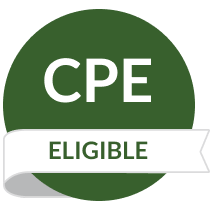Notes from the IAPP Canada: AI, managing data responsibly is top of mind


Published:
Contributors:
Kris Klein
CIPP/C, CIPM, FIP
Country Leader, Canada, IAPP; Partner
nNovation
Editor's note: The IAPP is policy neutral. We publish contributed opinion and analysis pieces to enable our members to hear a broad spectrum of views in our domains.
I've been having some interesting conversations with friends and colleagues lately and we've been debating which jobs are going to be negatively impacted by artificial intelligence in the not-so-distant future and which jobs will have less risk.
For anyone who thinks an AI is going to replace a privacy lawyer or consultant anytime soon, I have to admit … I don't see it. What I do see, at least right now, is that we are getting busier and busier as we try to help our organizations and clients make sense of it all, keep up and harness it in ways that make sense for them. In so many ways, I can't think of a profession that is better poised to adapt and I appreciate that the IAPP had this foresight.
AI and the impact of new technologies on the way we manage data responsibly is on everyone's minds, including our regulators.
One thing I want to flag that happened this week is that British Columbia Information and Privacy Commissioner Michael Harvey released his multiyear strategic plan, following some pretty extensive consultations and input from across that beautiful province. His top three strategic priorities: trust and transparency, trusted innovation and rights equity.
On this same theme, this week the Information and Privacy Commissioner of Ontario Patricia Kosseim, whose term was renewed earlier this year, launched a consultation to update the IPC's 2026-30 Strategic Plan. You have until 14 Nov. to have your say.
I know the words "strategic plan" don't exactly muster up a ton of excitement, but I'm telling you: if you are advising leadership, clients or leading a team on privacy and access, this is must-know stuff. These plans aren't just box checking exercises and corporate documents that gather dust. Every regulator I know uses their plan faithfully as a tool to guide their offices' efforts — what they'll hone in on and what they might pay less attention to. So, I think it's an essential and insightful tool to help privacy professionals do their jobs as well.
This week, Canada's federal, provincial and territorial information and privacy commissioners gathered in Banff, Alberta for their annual in-person meeting. Coming out of these things, the commissioners usually issue some type of joint resolution or statement on a topic they're particularly concerned with. I haven't seen anything come out yet, but stay tuned.
Meanwhile, with Parliament back in session, earlier this week federal Privacy Commissioner Philippe Dufresne had a chance to appear before the new Standing Committee on Access to Information, Privacy and Ethics. His theme was all about prioritizing privacy and why that makes sense.
During the Q&A portion, a few parliamentarians really wanted to press Dufresne for his views on Bills C-8 and C-2, both of which the MPs said give far too much reach to the government and/or law enforcement. Dufresne tried not to pre-empt the input he may give when called specifically to speak on the two bills, but did emphasize his desire to see necessity and proportionality built in, and some oversight mechanisms.
On the heels of those comments, it looks like the government is going to table a bill that doesn't include some of the clauses — that is, the so-called "lawful access" provisions — folks were fussed about.
Anyway, we've been working from Mont Tremblant this week — if our regulators were spending the week in Banf, we figured we'd do the East side of the continent version — while taking a few moments to enjoy the crisp air and the stunning multicolored leaves this region has to offer. Whether or not you celebrate Canadian Thanksgiving, I hope you get the chance to rest a bit and rejuvenate for what continues to be a busy and interesting time in our field.
Kris Klein, CIPP/C, CIPM, FIP, is the country leader, Canada, for the IAPP.
This article originally appeared in the Canada Dashboard Digest, a free weekly IAPP newsletter. Subscriptions to this and other IAPP newsletters can be found here.

This content is eligible for Continuing Professional Education credits. Please self-submit according to CPE policy guidelines.
Submit for CPEs

